Arms dealers cannot be peacemakers: Europe is a lesson for Asia
Even as Asia-Pacific countries want to focus on trade and economic cooperation, geopolitical tussling - especially between the US and China - has got in the way of such efforts. Former journalist and MP Goh Choon Kang says that at a time when arms dealers have apparently become peacemakers, countries of this region must stay focused and not be sidetracked and dictated by the powers.
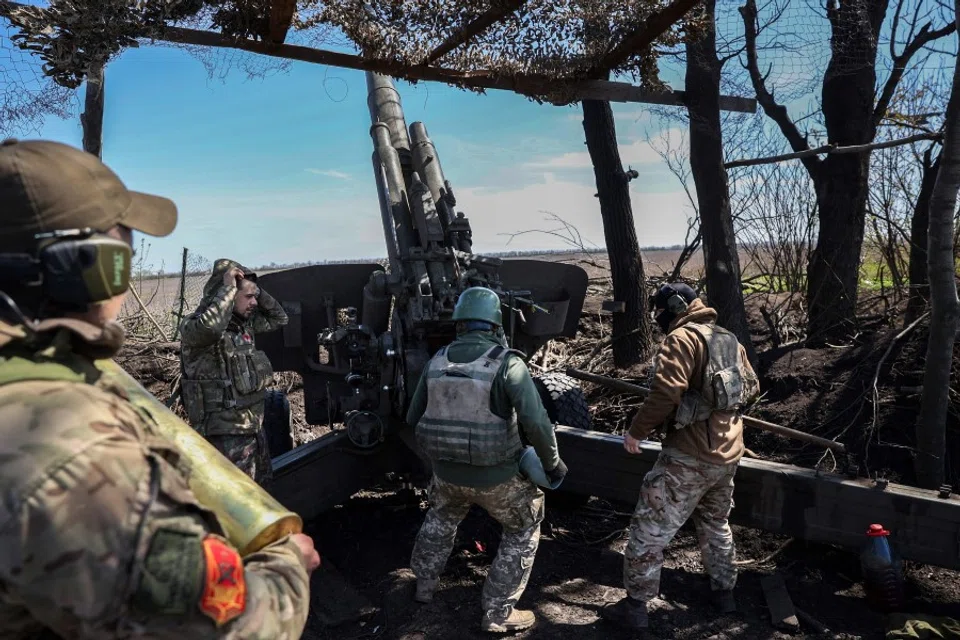
In 2005, Singapore, Chile, New Zealand and Brunei signed the Trans-Pacific Strategic Economic Partnership Agreement (TPSEP, also known as P4). Three years later, as part of its strategic shift to the east, the US "hijacked" and expanded this agreement in the form of the Trans-Pacific Partnership (TPP), which was signed during the Obama administration in 2016 by 12 countries including the US but excluding China. Unexpectedly, the US promptly pulled out of the TPP when Donald Trump became US president.
However, the other 11 countries did not give up but gave the agreement a new name: the Comprehensive and Progressive Agreement for Trans-Pacific Partnership (CPTPP), highlighting the importance of multilateral trade cooperation to Asia-Pacific countries. Everyone was determined to push through trade cooperation even without the US, which came and left without derailing the agenda.
Fast forward to January 2022, and the Regional Comprehensive Economic Partnership (RCEP) involving 15 Asia-Pacific countries entered into force, this time including China - but this was an agreement that India had pulled out of at the last minute. In any case, this is a huge regional free trade entity and one more step forward in multilateral trade cooperation among Asia-Pacific countries.
Political tussling disrupting trade cooperation
... it is a fact that some Asia-Pacific countries are jostling to ramp up their military.
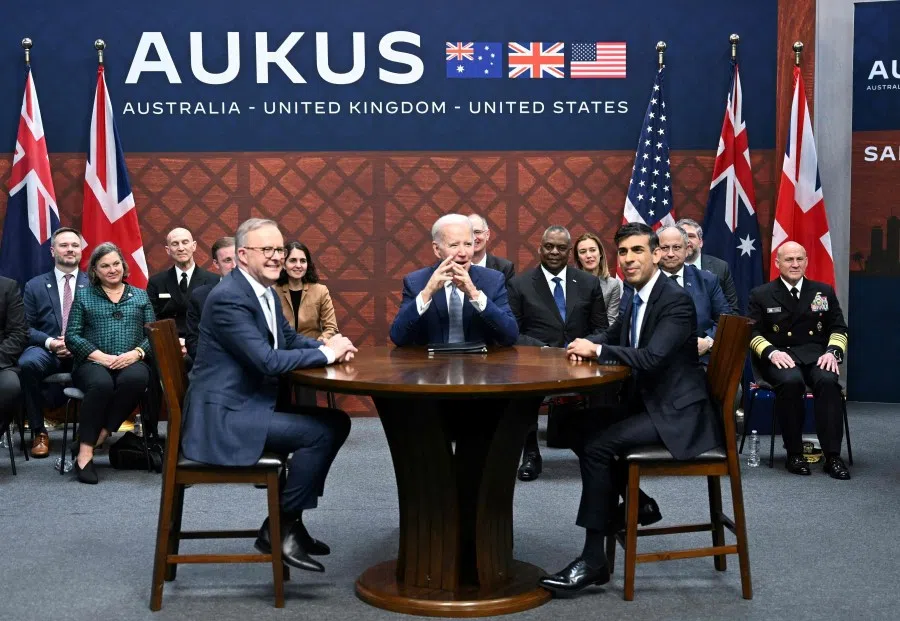
At once, dark clouds formed over the South China Sea and the Pacific. Military vessels from the UK, France and Germany that were not seen after World War II made the long voyage to our doorstep, while Australia ordered nuclear submarines from the US. The agenda and process of Asia-Pacific multilateral trade cooperation were suddenly at risk of being jettisoned.
A Straits Times opinion page on 8 April with the header "Arming Against War" was even more startling. Two of the three articles below that header were clearly referring to China. One was titled: "As China Flexes its Muscles, East Asian Neighbours Ramp Up Defences". The second was: "South-east Asia Plays Catch-Up With China's Military Might". And the third - "Armed to the Teeth: Asia-Pacific Countries in Arms Race amid Tensions in Region". The motif was familiar, mainly saying that China's assertiveness has led neighbours to ramp up their military.
This could be another chicken and egg debate, but it is a fact that some Asia-Pacific countries are jostling to ramp up their military. Even Australia, some 7,400 kilometres away from China, says it feels the threat from China; nearby Japan, which is involved in a dispute over the Diaoyu/Senkaku islands, would have even more reason to grow its military. Japan is set to increase its defence budget from 1% of GDP to 2%, in line with NATO standards, and is seeking to purchase 400 US-made Tomahawk missiles.
Following the Russia-Ukraine war, US weapons sales in Europe have been booming. The US arms market is also expanding to Asia.
Thriving arms market in Europe and Asia
The Philippines, which is also in a dispute with China over some islands, does not look like it has too much money to buy US arms, and so it has chosen another way: providing the US with military bases. The Marcos Jr administration recently announced that it would be adding four more US military bases in the Philippines, making a total of nine.
Now, South Korea is even talking about nuclear armament; even Taiwan, which is considered a pawn, is hurrying to buy more US-made arms. The US itself, to maintain its dominance in the Pacific, has announced that its Department of Defense has requested a US$842 billion defence budget for 2024. Amid US containment, naturally, China would have to actively get its troops and arms ready.
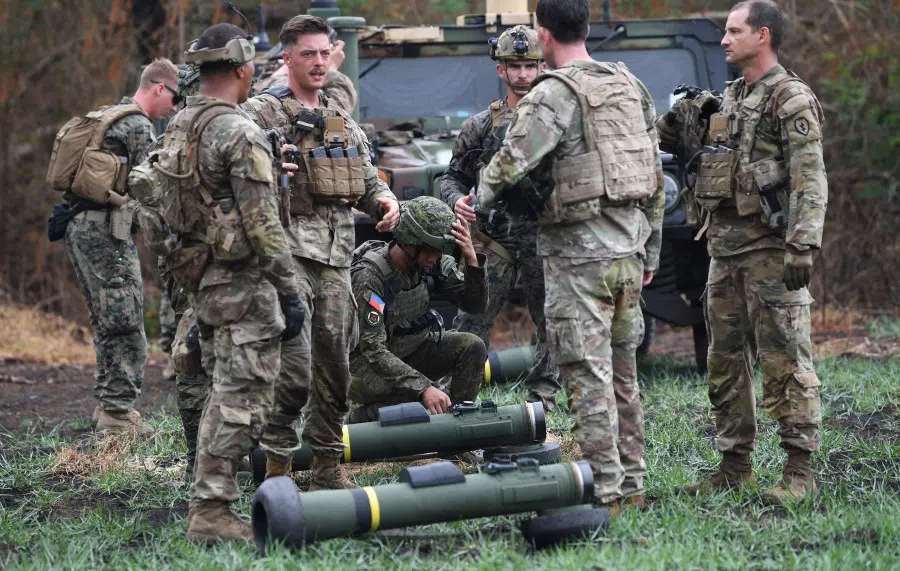
Following the Russia-Ukraine war, US weapons sales in Europe have been booming. The US arms market is also expanding to Asia. Unsurprisingly, there has been talk in Washington about whether US supplies can keep up with the demand. On 31 March, Seth G. Jones, senior vice-president and director of the International Security Program at the Center for Strategic and International Studies, wrote in Foreign Affairs magazine that since the outbreak of the Russia-Ukraine war, the US has provided Ukraine with various weapons, such as Javelin anti-tank systems, HIMARS and Stinger anti-aircraft systems, with American military aid reaching a whopping US$32 billion in a year. Most of these weapons had come directly from US inventories, depleting the country's stockpiles.
... arms dealers have apparently become peacemakers.
Jones wrote that the number of Javelins transferred to Ukraine over the first six months of the war is the same number that the US would normally produce over seven years, meaning that the DOD would need to inject funds into production facilities to replenish supplies. He stressed that if war broke out in Asia, the US defence industrial base would face even greater challenges. He concluded: "The US defence industrial base is sorely lagging. Without urgent changes, the United States will find itself unable to fight a protracted war or deter Russian or Chinese aggression."
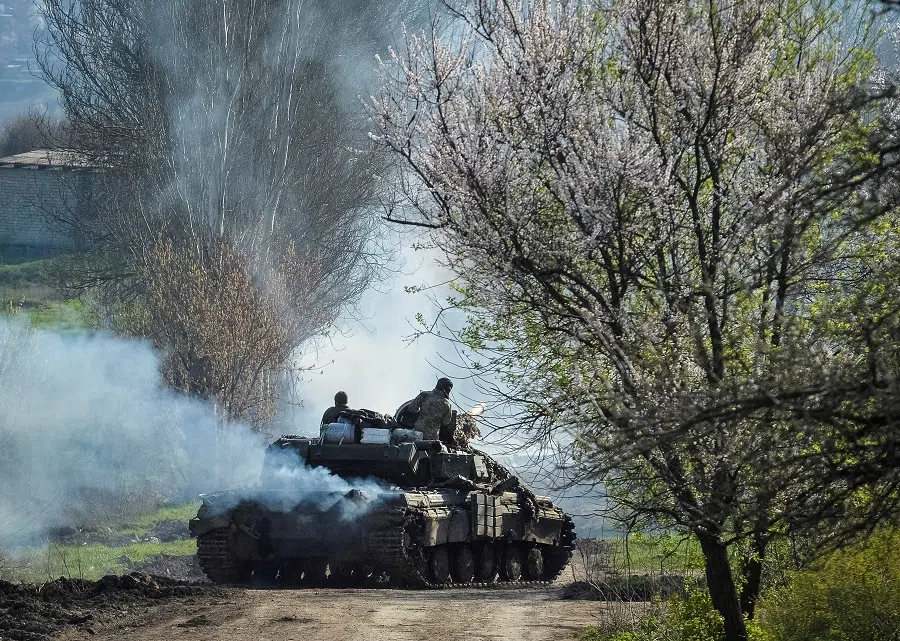
Notably, the next course of action for US arms manufacturers who are already venturing into global markets would be to expand production lines and step up production. American politicians have been adept at justifying all this, saying that selling weapons to various countries is strengthening their military strength not for war but to prevent war. US House Foreign Affairs Committee chairman Michael McCaul recently led a bipartisan delegation to Taiwan, where he stressed the need to expedite the delivery of weapons to Taiwan. His stance clearly shows that he concurs with said American politicians' views - arms dealers have apparently become peacemakers.
Southeast Asian countries want focus on economics and trade
Southeast Asian countries actually want the US to focus more on economics and trade, rather than military cooperation. But the Americans do not have the desire to do so and thus give half-hearted responses. Because ultimately, the arms market and weaponry business is what's most important to them.
Europe can actually serve as a lesson for Asia. The Russia-Ukraine war has allowed the US to re-enter the European arms market, and have European countries foot the bill for the collateral damage. The Nord Stream gas pipeline running from Russia to Germany has been blown up, while the China-EU Comprehensive Investment Agreement advocated during the Angela Merkel era is frozen. The Europeans want strategic autonomy, but they are locked into the straitjacket of NATO.
Pained by such sufferings, German Chancellor Olaf Scholz decided to lead a business delegation to China last November. French President Emmanuel Macron followed suit this month, and many economic deals were signed between major French enterprises and Chinese enterprises. During Macron's visit to China, French aircraft manufacturer Airbus SE announced that it would add a second final assembly line for A320 narrow-bodies at its Tianjin factory, with plans to produce as many as 75 A320 and A321 jets a month by 2026. At the same time, the planemaker has also signed a new cooperation agreement with a Chinese aviation partner involving a 160 commercial aircraft purchase agreement, rattling American aircraft manufacturer Boeing.
Thus, countries in the Asia-Pacific region should avoid being controlled and dictated by military alliances...
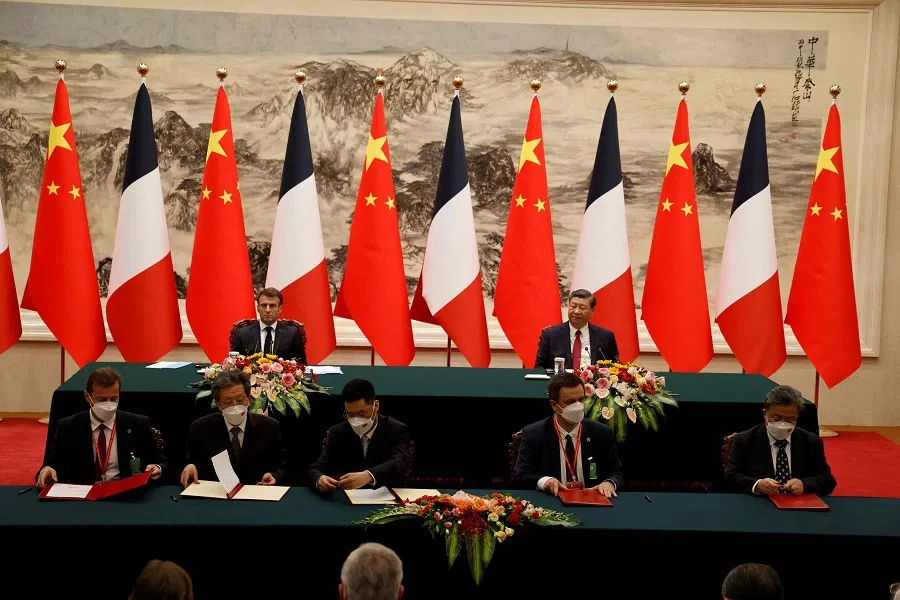
Mutually beneficial economic and trade cooperation is still the most practical. After the US withdrew its troops from Afghanistan, Middle Eastern geopolitics changed quickly. But most recently, China actually brokered the Saudi-Iran rapprochement, and the Yemen civil war could come to an end soon. Does this mean that the Middle East will soon break out of the Western-controlled geopolitical landscape?
Facts have proven that China is able to make a difference in diplomacy and its approach of persuading peace and promoting talks also enjoys popular support. Many countries yearn to strengthen multilateral economic and trade cooperation, especially at a critical time when all economies desperately need to recover and revitalise after the pandemic.
Thus, countries in the Asia-Pacific region should avoid being controlled and dictated by military alliances (Japan and South Korea are helpless when it comes to this). Instead, they should exercise strategic autonomy to protect their interests and ensure that economic agendas and processes are not subverted by external forces.
This article was first published in Lianhe Zaobao as "亚太经济议程不能被颠覆".
Related: Can China's economic choices build its dream society? | How US is continuing to restructure globalisation and the global trade system | Q&A: Malaysia's new trade minister explains why China matters to Southeast Asia | RCEP: The benefits, the regret and the limitations | China has entered the 'gilded cage' of RCEP and is considering the CPTPP. What's next?
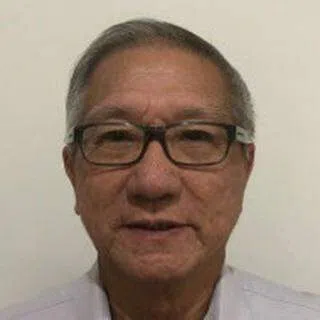


![[Big read] When the Arctic opens, what happens to Singapore?](https://cassette.sphdigital.com.sg/image/thinkchina/da65edebca34645c711c55e83e9877109b3c53847ebb1305573974651df1d13a)

![[Video] George Yeo: America’s deep pain — and why China won’t colonise](https://cassette.sphdigital.com.sg/image/thinkchina/15083e45d96c12390bdea6af2daf19fd9fcd875aa44a0f92796f34e3dad561cc)